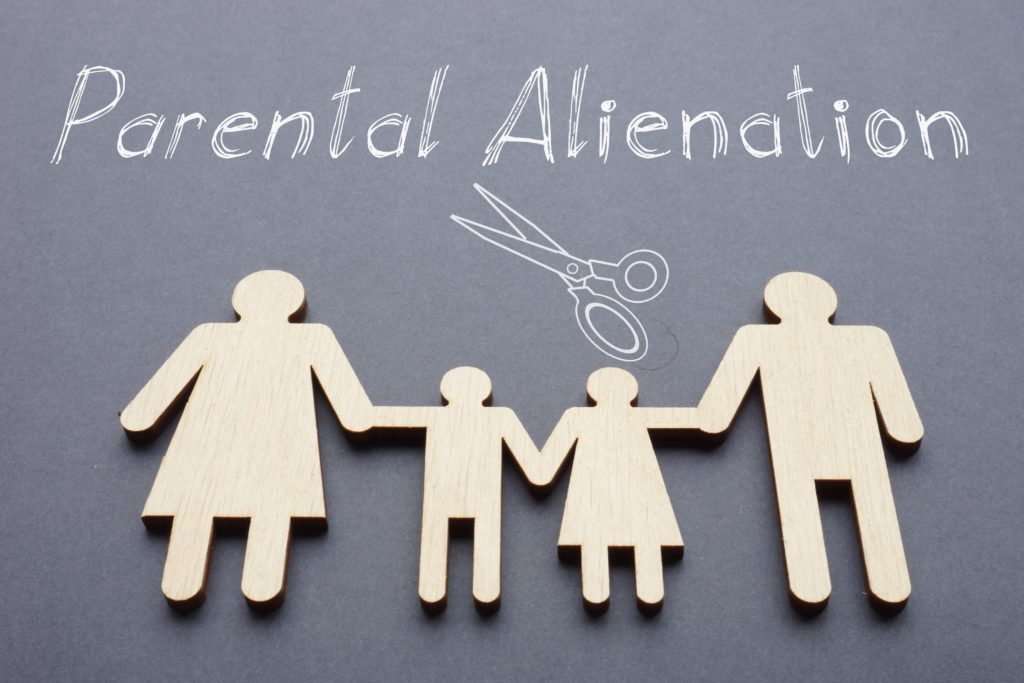In March 2023 Family Court reform and the role of CAFCASS were debated in Parliament. During the debate Parliament was advised that 70% of Family Court cases in England and Wales feature allegations of parental alienation. Perpetrators of domestic abuse often allege parental alienation to diminish their own behaviour or as an extension of the domestic abuse they have caused the other parent to suffer. It has also been considered that parental alienation amounts to abuse. In some cases, both parents can cause the child(ren) to adopt behaviour that causes them to refuse to spend time with one parent.
Re C (Parental Alienation’; Instruction of Expert) [2023] EWHC 345
The question of whether it is for the Court or an expert (e.g. psychologist) to decide whether there has been alienation in children proceedings was settled by Sir Andrew McFarlane in Re C (Parental Alienation; Instruction of Expert). It was decided that parental alienation is not a syndrome capable of being diagnosed by an expert. It is a question of fact for the Court. The correct approach is for the Court to identify ‘alienating behaviour’ and how these impact the child(ren) and their relationship with the other parent. There are three elements to determining alienating behaviour:
- The child is refusing, resisting, or reluctant to engage in, a relationship with a parent or carer
- The refusal, resistance or reluctance is not consequent on the actions of the non-resident parent towards the child or the resident parent; and
- The resident parent has engaged in behaviours that have directly or indirectly impacted on the child, leading to the child’s refusal, resistance, or reluctance to engage in a relationship with the other parent.
In Re C, Sir Andrew McFarlane stated that there was a “need for rigour” and “clarity” when instructing psychologists to give expert evidence in Family Court cases but stricter regulation was ultimately for Parliament to act on. The Ministry of Justice commented that it is a matter for the judiciary to determine which experts may be instructed to provide evidence in Family Law proceedings.
There is a specific Family Justice Council working group regarding alienating behaviour that is co-chaired by HHJ Venables and Jaime Craig. The objective of the group is to consider the issues arising from allegations of alienating behaviour from a multi-disciplinary viewpoint and to develop FJC guidance as to how these complex allegations are responded to by the Family Courts. The consultation on the draft guidance they published in relation to expert witnesses in cases involving allegations of alienating behaviour closed in October 2023. A significant number of responses were received from a broad range of stakeholders. The working group have finished their first review and aim to publish the final version of their guidance in the autumn of 2024.
Re T (A Child) (s9(6) Children Act 1989 orders: exceptional circumstances: parental alienation) [2024] EWHC 59 (Fam)
In this case Mrs Justice Arbuthnot appeared to share the frustration felt by professionals dealing with cases involving allegations of parental alienation. She described the case as “an example of how little the Court, even the High Court, can do when a party, whether the mother or father is determined to cut the other out of their children’s lives”.
The Court had been involved with the family in question on and off for over 10 years. There had been more than 20 hearings and 26 judges dealing with the case. The relevant children were “S” who was almost 18 years old and “T” who was 15 years old.
Multiple judges in many different sets of proceedings found the mother to have been dishonest and her behaviour had amounted to emotional abuse of the children. She had spent the entirety of the proceedings persuading S and T that she had been a victim of abuse by the father which was found to be untrue and undermined the father’s relationship with the children throughout their childhood. She lacked insight and failed to accept any of the findings made against her by the different judges. Limited findings were made against the father.
The mother and the father agreed that no order should be sought in respect of S who was nearly 18 years old and had been more entrenched in her views against the father. The issues to consider were:
- Whether it would be in T’s best interests for contact to continue in the current form with the father; and
- Whether any order should last until T was 18 years old (contrary to s9(6) of the Children Act 1989 which provides that any child arrangements order should only be made and in force regarding children who are over 16 years old in exceptional circumstances).
The mother’s position was that contact between T and the father should stop. The father’s position was that an order should be made up until T’s 18th birthday. The Guardian’s view was that an order should only be made up until T’s 16th birthday.
Mrs Justice Arbuthnot found that whilst this was an exceptional case it was not unique and taking into account T’s wishes and feelings, she decided that an order up until T’s 18th birthday would be futile and it would be inappropriate to disregard T’s wishes and feelings. An order was therefore made up until T’s 16th birthday to ensure that some contact continued. Mrs Justice Arbuthnot requested submissions from Counsel as to why the judgment should not be published in an un-anonymised form. She considered that the proceedings needed to be fully exposed to the public gaze.
Re T (A Child) (No 2) (Transparency: publication of the party’s names) [2024] EWHC 161 (Fam)
It is hoped that with greater transparency the Family Court will be able to demonstrate to the public how alienating behaviours occur. Re T (A Child) (No 2) involved the same family but dealt with the issue of greater transparency in Family Court proceedings and protecting the privacy of the families involved.
Section 12 of the Administration of Justice Act 1960 provides that in proceedings relating to the upbringing of a child, publication of information is a contempt of Court.
Section 97 of the Children Act 1989 provides that it is a criminal offence for someone to publish information that identifies a child being involved in any proceedings, but this can be relaxed where ‘welfare’ requires it.
The parties in this case agreed that the judgment could be published in anonymised form. The issues to consider were:
- Whether, when T attains 18 years old, the judgment should be published naming the parties; and
- Whether, on publication in un-anonymised form, there would be protection to T and S if their names were removed from the judgment.
The mother’s position, unsurprisingly, was that there should be no un-anonymised version of the judgment published citing the case of Griffiths v Tickle & Ors [2021] EWCA Civ 1882 and balancing Articles 8 (private and family life) and 10 (freedom of expression) rights. The father’s position was that the judgment should be published in full when T attains 18 years old on the basis of public interest and so that the children could be informed of the Court’s findings. T (and S) strongly expressed their wish to keep their family life private to CAFCASS.
Mrs Justice Arbuthnot weighed up the balance of Articles 8 and 10 rights and decided that publication was important to provide the public within insight into the Family Court decision making process. It was decided that the judgment would be published in full in 2026 when T attains 18 years old naming the parents but not T or S to serve the public interests put protect the children’s privacy.
Raising allegations of parental alienation without meeting the criteria for doing so often leads to highly contentious, protracted and expensive Court proceedings. Therefore, it is strongly advised that parents consult with one of our specialist Family Law Solicitors before raising such allegations in children proceedings.
Annie Boxer
[email protected]
The International Family Law Group LLP
www.iflg.uk.com
© May 2024
- Annie Boxerhttps://iflg.uk.com/team/annie-boxer
- Annie Boxerhttps://iflg.uk.com/team/annie-boxer
- Annie Boxerhttps://iflg.uk.com/team/annie-boxer
- Annie Boxerhttps://iflg.uk.com/team/annie-boxer











